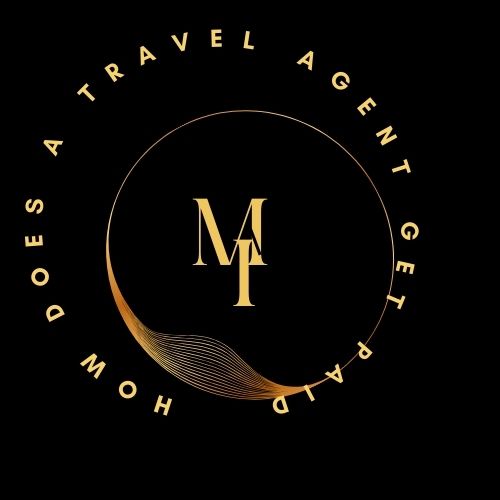How Does a Travel Agent Get Paid: A Comprehensive Guide
Introduction of How does a travel agent get paid

How does a travel agent get paid? Many people, including hopeful travel experts and curious travelers, are interested in this question. In a time when online booking stages are overwhelming, travel planners continue to be essential because they offer individualized assistance, master information, and routine access to restrictive arrangements. Be that as it may, how do these experts get by in the present computerized world? What is the pay for a travel planner’s time, mastery, and commitment to the movement arranging process? This comprehensive article provides a comprehensive examination of the various revenue streams and compensation models that keep travel agents in business. To shed light on an industry that continues to adapt and thrive in the face of technological disruption and shifting consumer behaviors, we will investigate the multifaceted world of travel agent compensation. This includes conventional commissions, modern service fees, and specializations.
The Historical Perspective: Traditional Payment Models
To understand how travel agents get paid today, it’s essential to look at the industry’s history and how compensation models have evolved over time.
The Golden Age of Commissions
The Basic Commission Model
The payment system for travel agents was straightforward in the early days of the travel industry: Agents received commissions for bookings from travel providers like airlines, hotels, and cruise lines. Commissions normally went from 10% to 15% of the absolute reserving esteem. The only source of income for agents was these commissions.
Benefits of the Commission Model
- Simplicity: Agents and customers easily understood the system.
- Alignment of interests: Higher booking values meant higher commissions for agents.
- No upfront costs for customers: Agents’ services appeared “free” to travelers.
Challenges of the Commission Model
- Dependency on suppliers: Agents’ income was entirely reliant on supplier policies.
- Potential for bias: Higher commissions could influence agent recommendations.
- Limited recognition of time and expertise: Complex, time-consuming bookings didn’t necessarily yield higher commissions.
The Commission Cut Crisis
The travel industry underwent a massive transformation in the late 1990s and early 2000s: To cut costs, major airlines began reducing or eliminating commissions. This move was partly made in response to the growth of platforms for online reservations. There was a significant decline in the number of travel agencies as a result of this struggle for survival.
Factors Contributing to the Crisis
- the rise of online travel agencies (OTAs) like Travelocity and Expedia. Monetary tensions on carriers following occasions like the 9/11 assaults. a shift in consumer behavior, with an increase in online travel bookings.
Impact on the Travel Agent Profession
- Thousands of travel agencies closed their doors.
- Remaining agents had to quickly adapt their business models.
- The crisis sparked a revolution in how travel agents approached their profession and earned income.
Modern Revenue Streams: How Travel Agents Get Paid Today
In response to the commission cut crisis and evolving market conditions, travel agents have diversified their revenue streams. Let’s explore each in detail.
1. Service Fees
Service fees have become a cornerstone of travel agent compensation in the modern era.
Types of Service Fees
- For each service, a set fee is charged, like $50 for airline reservations or $250 for complex itinerary planning. Fees based on a percentage: A percentage of the trip’s total cost, like 10% of the price of the package. Consultation Fees: These are money paid to get advice and plan a trip. Usually, when a reservation is made, they are refunded. fees for research: for complicated trips that call for a lot of knowledge and research. Change or Cancellation Fees: Charges made when reservations are changed or canceled.
Benefits of Service Fees
- Offset supplier commissions with a reliable source of income. Permit specialists to be made up for their time and aptitude, regardless of whether appointments aren’t made. Contribute to the payment of travel agency operating expenses (such as staff, technology, and marketing) Urge clients to esteem the specialist’s expert administrations.
Implementing Service Fees
- Transparency is key: Clearly communicate fee structures to clients upfront.
- Highlight the value provided in exchange for fees (e.g., time savings, expert advice, exclusive access).
- Consider offering fee waivers for high-value or repeat clients.
- Develop a tiered fee structure based on the complexity of the travel request.
2. Commissions from Suppliers
While not as prevalent as before, commissions remain a significant source of income for many travel agents.
Cruise Lines
- Typically offer 10-16% commission on the base cruise fare.
- May provide additional bonuses for high-volume sellers.
- Example: Royal Caribbean offers up to 16% commission for top-producing agencies.
- Some lines offer “non-commissionable fares” (NCFs) which reduce the overall commission.
Tour Operators
- Often pay 10-15% commission on package tours.
- Some offer higher rates for luxury or specialized tours.
- Example: G Adventures offers up to 15% commission on their adventure tours.
- Volume-based incentives are common, encouraging agents to focus on specific operators.
Hotels
- Commission rates usually range from 8-15% on room rates.
- Luxury hotels may offer higher rates to incentivize bookings.
- Example: Marriott Bonvoy offers up to 10% commission on room rates.
- Some hotels have moved to net rates, allowing agents to add their own markup.
Car Rental Companies
- Typically offer 5-10% commission on rentals.
- May have promotional periods with higher rates.
- Example: Enterprise offers up to 8% commission for travel agent bookings.
- Some agencies negotiate flat rates with car rental companies for better overall value.
Airlines
- Most major airlines have eliminated base commissions on ticket sales.
- Some international or boutique airlines may still offer 1-5% commission.
- Agents can earn through consolidator fares or by adding service fees to airline bookings.
3. Override Commissions and Incentives
Override commissions are bonus payments based on sales volume or performance:
- Offered by suppliers to incentivize higher sales.
- Often tiered, with higher commission rates for higher sales volumes.
- Can significantly boost income for successful agents or agencies.
Types of Overrides
- Volume-Based: Increased commission percentages for reaching certain sales thresholds.
- Growth Incentives: Bonuses for year-over-year sales increases.
- Preferred Partner Programs: Higher commissions or exclusive offers for focusing on specific suppliers.
Maximizing Override Potential
- Strategically focus on suppliers offering the best override programs.
- Track sales meticulously to ensure all overrides are captured.
- Educate staff on override opportunities to align team efforts.
- Negotiate custom override agreements with key suppliers.
4. Markup on Net Rates
Some suppliers offer net rates to travel agents, allowing them to add their own markup:
- Common with wholesale tour operators and some hotel bookings.
- Agents can adjust markup based on market conditions and competition.
- Provides flexibility in pricing and potential for higher profits.
Advantages of Net Rate Model
- Control over final pricing and profit margins.
- Ability to offer competitive rates while maintaining profitability.
- Flexibility to adjust prices based on demand, seasonality, or client relationships.
Challenges of Net Rate Model
- Requires careful market analysis to set competitive yet profitable rates.
- Risk of underpricing or overpricing if not managed carefully.
- May require more complex accounting and tracking systems.
5. Affiliate Income
Affiliate marketing is used by many travel agents to supplement their earnings: promoting products related to travel (like luggage, travel insurance, and travel gear, for example). obtaining compensation for sales brought about by unique affiliate links. collaborating for mutual benefit with travel bloggers or influencers.
Popular Affiliate Programs for Travel Agents
- World Nomads and Allianz offer affiliate programs for travel insurance. Luggage and Travel Gear: Affiliate opportunities exist for brands like Eagle Creek and Samsonite. The Travel Books and Guides program from Amazon is for travel books. Viator and GetYourGuide offer affiliate partnerships for activities and experiences.
Maximizing Affiliate Income
- Choose products that align with your clientele and travel niche.
- Incorporate affiliate promotions naturally into your client communications.
- Use your website and social media to showcase affiliate products.
- Always disclose affiliate relationships to maintain transparency and trust.
Specialization and Niche Markets: Boosting Earning Potential
A travel agent’s earnings potential can be significantly increased by focusing on specific travel types or catering to niche markets:
Luxury Travel
- Higher commissions due to higher price points.
- Often involves more personalized service and complex itineraries.
- Requires building relationships with high-end suppliers and clients.
- May involve exclusive access to luxury properties and experiences.
Key Aspects of Luxury Travel Specialization
- establishing connections with tour operators, cruise lines, and luxury hotels. acquiring expertise in exclusive experiences and high-end destinations. supplying discerning clients with concierge-level service. Remaining refreshed on extravagance travel drifts and arising objections.
Adventure Travel
- Growing market with potential for higher margins.
- Requires specialized knowledge of destinations and activities.
- Often involves working with niche tour operators offering higher commissions.
- Attracts passionate travelers willing to invest in unique experiences.
Succeeding in Adventure Travel
- Gain firsthand experience in adventure destinations and activities.
- Build relationships with specialized tour operators and local guides.
- Stay informed about safety standards and travel insurance requirements.
- Develop a strong online presence to attract adventure-seeking clients.
Corporate Travel
- Steady stream of bookings from business clients.
- Opportunity for long-term contracts with companies.
- Requires expertise in managing complex travel policies and itineraries.
- Often involves higher volume but lower margins compared to leisure travel.
Key Skills for Corporate Travel Agents
- Understanding corporate travel policies and compliance requirements.
- Proficiency in Global Distribution Systems (GDS) and travel management tools.
- Ability to negotiate rates with suppliers for corporate clients.
- 24/7 availability for urgent travel changes or crisis management.
Destination Weddings and Honeymoons
- High-value bookings with potential for repeat business.
- Requires strong organizational skills and attention to detail.
- Often leads to referrals for future travel planning.
- Involves coordinating multiple vendors and complex logistics.
Building a Destination Wedding Specialization
- Develop relationships with wedding venues and suppliers in popular destinations.
- Understand legal requirements for international weddings.
- Establish alliances with photographers and wedding planners. Provide travel planning for couples and guests prior to and following the wedding.
The Role of Host Agencies in Travel Agent Compensation
The fact that many travel agents work for a host agency can have a significant impact on their earnings and business operations.
Benefits of Host Agencies
- Access to higher commission levels due to aggregate sales volume.
- Provision of marketing, technology, and administrative support.
- Training and professional development opportunities.
- Errors and omissions insurance coverage.
- Access to preferred supplier relationships and booking platforms.
Commission Split Models
Host agencies typically use one of two models:
- Fixed Split: The agent receives a set percentage of commissions (e.g., 70/30 split).
- Tiered Split: The agent’s percentage increases with higher sales volumes.
Example of a Tiered Split Model
| Annual Sales Volume | Agent’s Commission Split |
|---|---|
| $0 – $50,000 | 70% |
| $50,001 – $100,000 | 75% |
| $100,001 – $250,000 | 80% |
| $250,001 – $500,000 | 85% |
| $500,001+ | 90% |
Choosing a Host Agency
Factors to consider when selecting a host agency:
- Commission split structure and potential for growth
- Support services offered (e.g., marketing, accounting, technology)
- Technology platforms provided (booking engines, CRM systems)
- Training and networking opportunities
- Reputation in the industry and with suppliers
- Specializations or niche markets served
Independent vs. Host Agency: A Comparison
| Aspect | Independent Agent | Host Agency Agent |
|---|---|---|
| Initial Investment | Higher (licenses, bonds, tech) | Lower (often just startup fee) |
| Commission Rates | Potentially lower, unless high volume | Higher due to agency’s collective volume |
| Support Services | Self-provided or outsourced | Provided by host agency |
| Business Control | Complete autonomy | Some limitations based on host policies |
| Liability | Fully responsible | Often covered by host agency’s insurance |
| Marketing | Self-driven | Mix of self-driven and agency support |
| Training | Self-directed | Provided by host agency |
Online Travel Agencies (OTAs) vs. Traditional Agents: A Comparative Look
The rise of Online Travel Agencies (OTAs) has significantly impacted the travel industry. Let’s compare their compensation models and business approaches: How does a travel agent get paid
| Aspect | Traditional Travel Agents | Online Travel Agencies |
|---|---|---|
| Primary Revenue Source | Commissions and service fees | Commissions and advertising |
| Client Interaction | Personalized, often face-to-face | Primarily online, limited personal interaction |
| Specialization | Often focus on niche markets or luxury travel | Broad market appeal, high volume |
| Pricing Model | Mix of supplier rates and markups | Often rely on dynamic pricing algorithms |
| Value Proposition | Expertise, personalized service, complex itineraries | Convenience, price comparison, user reviews |
| Commission Rates | Vary by supplier, typically 10-15% | Often lower, but compensated by volume |
| Additional Income Streams | Service fees, consultation fees | Advertising, data monetization |
| Overhead Costs | Higher (office space, staff) | Lower (primarily technology and marketing) |
| Customer Support | Personalized, throughout the trip | Often automated or outsourced |
| Booking Process | Can be longer, more consultative | Quick, self-service |
| Ability to Handle Complex Requests | High | Limited |
Challenges in Travel Agent Compensation
Despite the various revenue streams available, travel agents face several challenges in maintaining and growing their income: How does a travel agent get paid
1. Competition from Online Platforms
- OTAs and direct supplier bookings continue to capture market share.
- Agents must clearly demonstrate their value proposition to justify fees.
- Constant need to differentiate services from what’s available online.
2. Economic Fluctuations
- Travel industry is sensitive to economic downturns and global events.
- Agents need to diversify their client base and service offerings to mitigate risks.
- Building a financial buffer for lean times is crucial.
3. Supplier Relationship Management
- Maintaining relationships with multiple suppliers is time-consuming.
- Keeping track of changing commission structures and policies.
- Balancing the needs of clients with preferred supplier agreements.
4. Technology Adoption
- Staying current with booking systems and travel technology.
- Balancing online presence with personalized service.
- Investing in and learning new tools for efficiency and competitiveness.
5. Changing Consumer Expectations
- Clients expect 24/7 availability and instant responses.
- Increasing demand for unique, experiential travel requires constant education.
- Pressure to provide value beyond what clients can find online themselves.
6. Commission Cuts and Restructuring
- Ongoing risk of suppliers reducing commissions or moving to net rate models.
- Need to constantly reevaluate and adjust business models in response to industry changes.
7. Increased Paperwork and Compliance
- Growing regulatory requirements in the travel industry.
- Need for meticulous record-keeping for commissions, overrides, and client transactions.
- Staying compliant with data protection laws (e.g., GDPR) and financial regulations.


